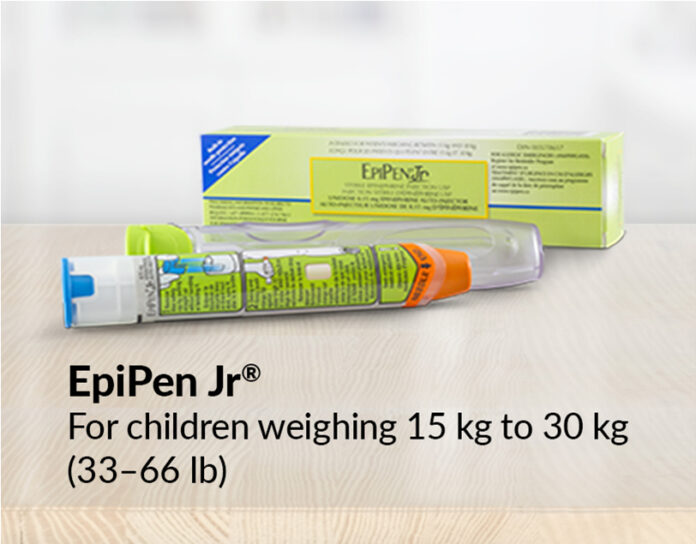
Beginning Jan. 1, 2025, the patient cost for a twin-pack of Epinephrine Auto-Injectors – or EpiPens as the lifesaving medication is commonly known – will be capped at $60.
Gov. J.B. Pritzker signed the measure contained in House Bill 3639 into law earlier this week. It was sponsored in the upper chamber of the Illinois General Assembly by state Sen. Mike Halpin, D-Rock Island.
“We’re talking about something that is proven to save lives, and people aren’t able to afford it,” Mr. Halpin said in a news release following the governor’s action. “This law takes a swing at pharmaceutical companies who are lining their own pockets with profits on life saving medication. We are making EpiPens affordable and accessible for all residents of Illinois who require them.”
Epinephrine Auto-Injectors are the only medication that works on the entire body to combat anaphylaxis, a potentially fatal allergic reaction, supporters say. But since 2017, a global shortage has made EpiPens increasingly difficult to obtain. Parts of the county have experienced shortages since 2018, with the FDA permitting an extension of the recommended shelf life of EpiPens to combat the shortage.
The shortage has been compounded for those who need the lifesaving drug by skyrocketing costs. According to the news release from Mr. Halpin’s office, a twin pack can cost anywhere from $500-$700 on average, and a single injector can cost anywhere from $300-$400. Those prices have placed a significant financial burden on families who need to keep multiple EpiPens on hand for emergencies, the release said.
Specifically, the new law will combat that by requiring insurance companies “that provide coverage for medically necessary epinephrine injectors to limit the total amount that an insured is required to pay for a twin-pack of medically necessary injectors at an amount not to exceed $60 regardless of the type of injector.” The law also does not bar insurance companies from reducing the cost-sharing for EpiPens below the $60 cap.
“I want to personally thank Senator Halpin for championing this cause and sharing his platform, allowing me to lend my voice and advocacy in support of his efforts,” said Tiffany Mathis, CEO & executive director of the Boys & Girls Clubs of Central Illinois. “When my child’s life was on the line and I couldn’t afford the cost of EpiPens, it was the most helpless feeling I’ve ever felt as a mother; there was nothing I could do. I am so proud to know that with the passage of this bill, other parents won’t have to feel as helpless as I did, or have to choose between paying their bills and keeping their child alive.”
FARE, the nation’s leading non-profit organization engaged in food allergy advocacy, and the largest private funder of food allergy research, also celebrated the Illinois legislation as “a groundbreaking victory for individuals and families managing severe food allergies in the state of Illinois.”
“We commend Governor Pritzker for his leadership and commitment to the health and well-being of Illinois residents,” said Jason Linde, senior vice president, advocacy for FARE (Food Allergy Research & Education). “On behalf of the more than 1.2 million state residents with potentially life-threatening food allergies, FARE is grateful for all of the Illinois grassroots advocates, Rep. Joyce Mason, Senator Mike Halpin, and the food allergy champions in the Illinois State House and Senate who made it possible for all families to afford the medicine they need.”
FARE has been a staunch advocate for legislative measures that make epinephrine more accessible and affordable, the organization said.
The Illinois law “is a significant milestone in these ongoing efforts, setting the stage for even more states to follow suit and prioritize the health and safety of their residents,” the organization said.
“FARE remains dedicated to advancing policies that protect and empower individuals with food allergies, and encourages other states to take decisive action to address the critical issue of epinephrine affordability.”
For more information about FARE’s advocacy efforts and to join the food allergy movement, please visit here.




